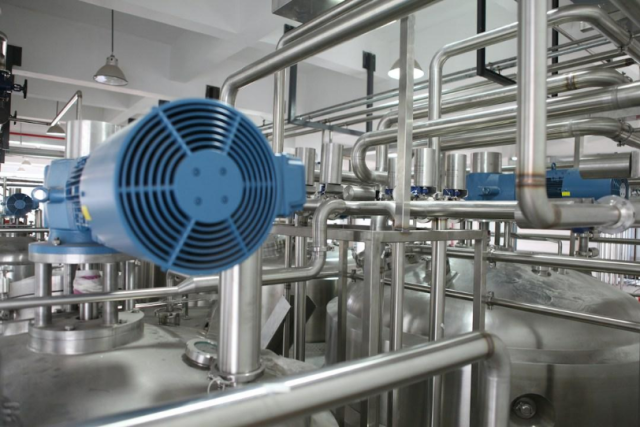Running an industrial facility comes with a myriad of challenges and requirements, from managing complex machinery to ensuring compliance with safety protocols. A successful operation requires an understanding of numerous components and processes that work in tandem to produce the desired outcome. Whether you’re a seasoned facility manager or new to the industrial sphere, gaining insights into the interworking of an industrial facility can empower you to streamline operations and increase productivity. In this article, we’ll delve into the critical areas that are fundamental to the effective management of an industrial site.
Understanding the Core Components of an Industrial Facility
Industrial facilities operate as ecosystems, with each component playing a role that affects the overall function. Key components include infrastructure such as power systems, water supply, and waste management. Each system requires careful planning and maintenance to ensure efficiency and reliability, especially in facilities that operate around the clock.
Additionally, industrial control systems are vital, as they manage machinery operation and automation processes. From programmable logic controllers (PLCs) to computerized maintenance management systems (CMMS), these tools help minimize downtime and optimize production cycles. As such, facility managers must be adept at overseeing these technological aspects to maintain smooth operations.
Another critical area is refrigeration, particularly in industries like food processing or pharmaceuticals, where temperature control is paramount. Genemco offers used industrial refrigeration equipment, which can be a cost-effective way to outfit or upgrade a facility. Ensuring these systems are functioning properly can make the difference between product preservation and loss.
Essential Safety Protocols for Operational Integrity
Safety within industrial facilities cannot be overstated—it is the linchpin that maintains not only the integrity of operations but also the well-being of the workforce. Establishing comprehensive safety protocols and ensuring their adherence is the responsibility of every facility manager. This extends from personal protective equipment (PPE) requirements to emergency procedures and beyond.
Regular safety training sessions are crucial to keep employees informed of current practices and prepared for unforeseen events. Drills and simulations help inculcate a safety culture and ensure quick and appropriate responses to emergencies. The training must cover all aspects, including machinery operation, hazardous materials handling, and fire safety.
Facility managers often utilize software programs like TrustLayer to monitor compliance and manage potential risks. These tools from TrustLayer help in tracking certifications, insurance documents, and training records, ensuring all safety measures are current and comprehensive. It’s a risk management platform automating the verification of insurance, licenses, and compliance documents.
Streamlining Production: Key Technologies and Equipment
In today’s competitive marketplace, streamlining production is a top priority. Advanced technologies such as IoT and AI are increasingly integrated into industrial settings to boost efficiency and predict maintenance needs. These technologies also enable real-time data analysis, allowing managers to make informed decisions swiftly.
The equipment used in industrial facilities is another significant aspect of production efficiency. High-quality machinery that’s properly serviced can significantly reduce downtime and increase output. It’s important to invest in equipment that aligns with the facility’s specific needs and to maintain a regular schedule for upkeep and updates.
Automation is transforming the landscape of industrial manufacturing, taking over repetitive tasks and allowing the workforce to focus on more complex or critical aspects of production. Automated systems must be fine-tuned to work harmoniously with human workers and existing processes to produce the best results.
Effective Waste Management and Sustainability Practices
One prominent consideration for any industrial operation is its impact on the environment. Effective waste management strategies are not just regulatory requirements but also part of corporate social responsibility. Recycling, reusing, and reducing waste are practices that need to be integrated into daily operations.
Adopting sustainability practices also means looking into energy-efficient technologies and processes. This helps in cutting down costs as well as minimizing the facility’s carbon footprint. Sustainability extends from the sourcing of raw materials to the finished product’s impact on the end-user.
Water is a resource that requires careful management, especially in industries that rely heavily on it such as textiles and beverages. Implementing water-saving technologies and procedures can result in significant conservation of this essential resource. Moreover, treating and recycling water within the facility is not only good for the planet but can also be economically advantageous.
Altogether, managing an industrial facility demands a multifaceted approach that combines the effective use of technology with sound operational practices. By focusing on these critical areas, facility managers can create a harmonious, efficient, and sustainable environment that meets the high standards of modern industrial operations.








